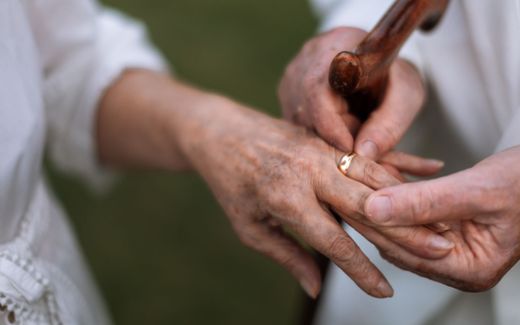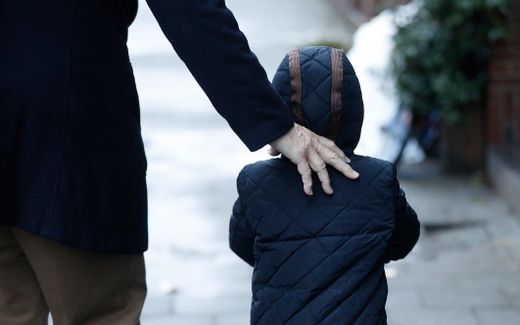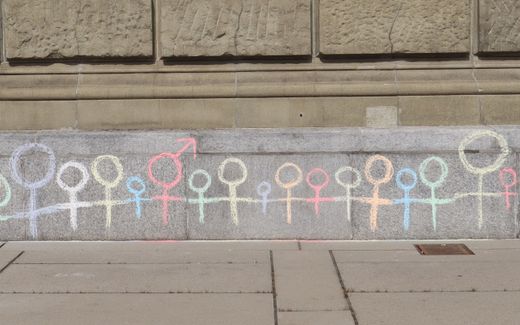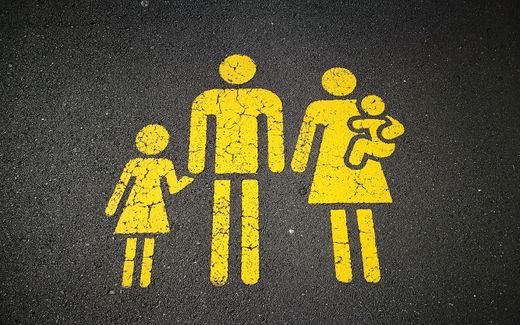Column from Spain: Just a few reasons why mental problems have doubled
05-02-2024

Young people at the Spanish beach. Photo EPA, Javier Etxezarreta
It’s official now: 59 per cent of all young people in Spain have some mental problem. This is more than double what it was in 2017. What has gone wrong? Jorge Ruiz Ortiz explores the horizon.
A new law is coming. In mid-January, the Spanish Congress of Deputies received a proposal about mental health. It is logical since all indicators prove that mental disorders have worsened significantly in recent years.
In October, the private foundation “FAD Juventud” published that 59 per cent of young people admitted to having had some mental problem (compared to 28 per cent in 2017). And more: One in three young people admits to having taken psychotropic drugs, half of them without a medical prescription. According to UNICEF, 15 per cent of young people in Spain present severe depressive symptoms. The share of youngsters that have contemplated suicide is even 11 per cent.
These data are staggering. It is welcome that public authorities pay attention to this. However, it is worth asking whether doing just that is sufficient.
Allow me to explain. Unlike, for example, autism (which I call the modern disease of the three “NO’s “: NO causes, NO treatment, NO hope of cure), you must address the causes that led to the illness.
Let’s, then, briefly review some factors of this gigantic problem in the youth.
Covid lockdowns
Firstly, we must discuss the most immediate cause: the mass lockdowns due to Covid. Spain had the strictest lockdown in Europe, leading to a fourfold drop in family income compared to the rest of the European Union.
According to official data, anxiety and depression among young people in Spain increased by 32 per cent in 2020, the year of the lockdowns. Something that the lockdown promoters surely did not consider well when ordering the halt of social life and keeping the population strictly confined at home for months. Later, however, they allowed them to go out under the coercion of always covering their faces and receiving the so-called vaccines.
When will Spanish politicians recognise and apologise for the harm they caused to young people? It would be advisable for them to do so, to resist the temptation to lock us up again. I am not entirely sure that they have learned all these lessons.
Bullying
Other causes that continue include the bullying at school. It matters most to young people to feel valued and integrated by their peers. According to a study by the Complutense University of Madrid, 220,000 students in Spain are victims of bullying, as well as 74,000 bullies. Those numbers are from November 2023 when, on the other hand, a student from a high school in Andalusia was admitted to the ICU after being beaten by three other classmates.
What can be the source of such devastating data on bullying? A quick answer is the loss of authority at school. This is something teachers are complaining about themselves. In line with the times, the school has ceased to promote and defend discipline and moral values beyond the friendly coexistence between pupils and teachers as an exercise and learning of democracy. In the face of the renunciation of the principle of authority by those who have it, the result, in life as in school, is usually the law of the strongest, whose secondary companions are often also the cruellest. This is the law of life.
Drug abuse
But there are more remote and deeper causes. I have written before that in Spain, a third of adolescents have used cannabis in the past month. Almost 20 per cent consider themselves to be compulsive users.
Also, the percentage of young people aged 16-18 who have had full sexual intercourse is 50 per cent. The average age of first sexual intercourse has even dropped to 13.8 years. On the other hand, Spain leads the world in terms of the percentage of young people who declare themselves LGBTI (14 per cent).
Thanks to the “Trans Law” passed in January 2023, Spain is also one of the most permissive countries in terms of sex change among teenagers. Even the progressive part of the Spanish press has started to report the mental problems of people who have changed their sex.
Majority out of wedlock
But there is more. Currently, most children are born out of wedlock, according to data published in November 2023. Divorce has decreased somewhat in recent years. But today’s children and adolescents are the children of the “express divorce” of 2005, thanks to which Spain became one of the countries with the highest divorce rate in the world.
Multitudes of children and young people have grown up without a father. Therefore, without the male figure of protection, security and authority.
What else could go worse? It is not that Spain is particularly prone to Murphy’s law. It is so that the decisions taken over the last 40 years to transform the country’s culture and way of being radically are beginning to be reaped.
Indeed, the Bible teaches that everyone not in Christ is dead in trespasses and sins (Ephesians 2:1-3). But all these characteristics we have alluded to did not exist in the Spain where I was born and raised, a Roman Catholic child in a Roman Catholic country. The aim was to do away with the traditional Spain – of Roman Catholic culture, no doubt, but still of a Christian expression.
And now we are completely immersed in a pagan world. The only thing that is certain to provide young people with is the prospect of despair and failure. Not to mention the more than certain prospect of emigrating for most university students because they cannot find jobs with decent pay on which a whole family can decently subsist… But, anyway, what became of the family to support?
The price to pay has been too high. The sacrifice of the younger generations has been excessive. The last two generations’ historical, social and cultural experiments have run their course.
But there is still hope. Hope for a true spiritual renewal from the Biblical Scriptures, for the reformation and restoration of Christianity and the church in this time.
Related Articles











